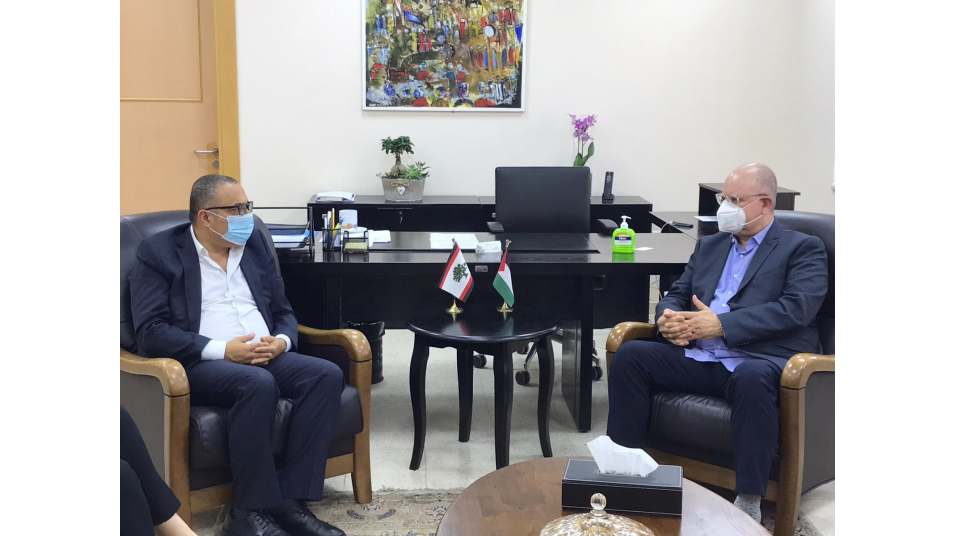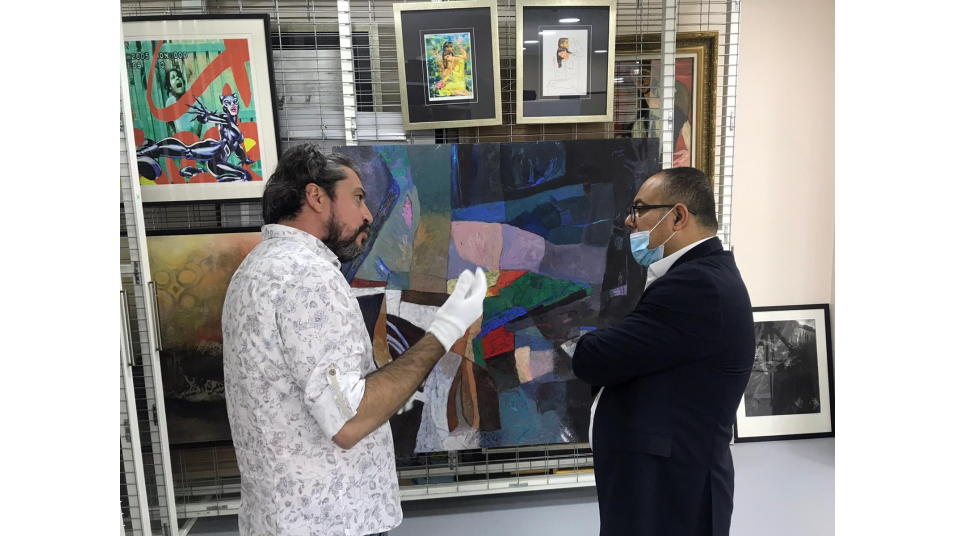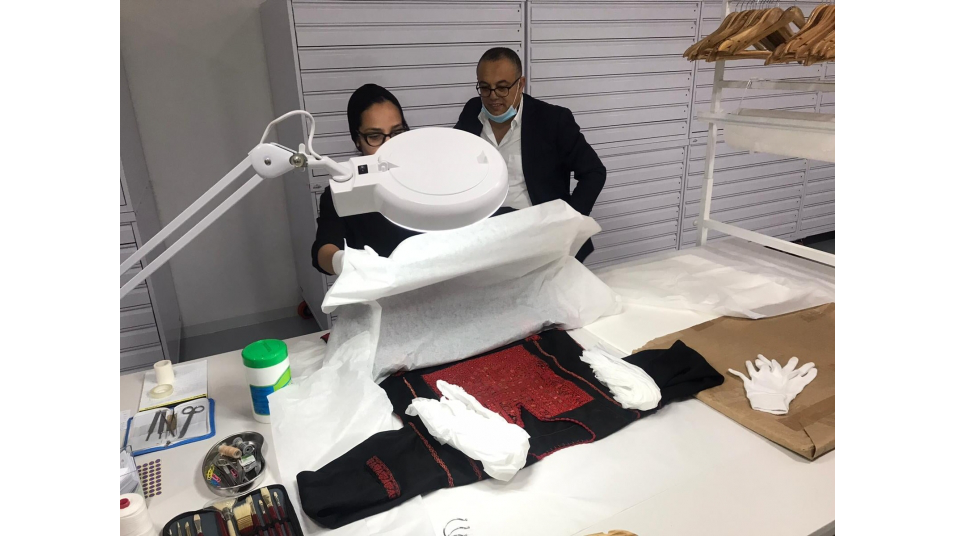Atef Abu Saif, culture minister, discusses efforts to promote local heritage in visit to campus
Dr. Atef Abu Saif, the Palestinian minister for culture, discussed efforts at Birzeit University to preserve and promote Palestinian culture and traditions in a meeting with University President Dr. Beshara Doumani on Thursday, August 19, 2021.
The meeting was attended by Director General of Taawon Yara Salem, Vice President for Advancement and Communication Dr. Ghassan Khatib, Vice President for Community Affairs Dr. Lourd Habash, and Director of the Birzeit University Museum Dr. Nazmi Al Jubeh.
An alumnus of Birzeit University, Abu Saif congratulated Doumani on taking office as president of the university and wished him and the rest of the University Council luck in guiding the institution towards more innovations and advancements in sciences and humanities.
Abu Saif stressed the importance of promoting Palestinian culture and heritage, noting that preserving and celebrating local traditions is a key part of the Palestinian quest for independence and freedom. He called for more programs and initiatives that promote Palestinian traditions and art regionally and internationally.
Doumani gave a brief overview of Birzeit University and highlighted in particular its efforts to preserve and celebrate Palestinian culture and traditions. The university, he explained, encourages its students, faculty, and staff members to contribute to the Palestinian cultural heritage through the programs and projects organized by its 11 institutes and centers.
With the recent local and global changes, added Doumani, Birzeit University is uniquely positioned to lead Palestinian efforts in engaged, meaningful knowledge production that is predicated on regional and international linkages with peoples of similar historical experience and challenges.
After the meeting, Abu Saif toured the Birzeit University Museum with Al Jubeh; Balqees Nakhlah, the assistant ethnographic and art collections curator; and Ziyad Hajali, the production unit supervisor. The museum, which was established in 1997, serves as an interactive art platform that presents students, faculty, and staff members with the opportunity to engage with Palestinian, Arab, and international artworks and compositions.
As part of the tour, Abu Saif viewed the museum’s main collections, including the Tawfik Canaan Amulets collection, with its 1,400 pieces, the earliest of which dates to 1912, presented to Tawfik Canaan from his Muslim, Christian, and Jewish patients; the Palestinian Costumes collection, which includes 350 traditional dresses, the earliest of which, Nakhlah explained, dates back to 1850; and the art collection, comprising over 300 paintings, prints, drawings, and sculptures by Palestinian, Arab, and international artists.









